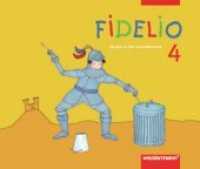Full Description
First published in Italian in 1990, Fiammetta Palladini's ground-breaking study of Samuel Pufendorf (1632-1694) remains one of the most important discussions of the subject to date. Now available in English for the first time, Palladini's book cuts through the existing field of Pufendorf studies, laying bare its inherited templates and tacit assumptions. Palladini is thus able to peel back the 'Grotian' commentary in which the great thinker had been shrouded, revealing a Pufendorf well-known in the 1680s—a formidable and dangerous natural jurist and political theorist—but doubly obscured in the 1980s and still today, by a philosophical history that flies too high to see him, and by a commentary literature that too often does not like what it sees. David Saunders' lucid translation carries Palladini's argument into English with maximum fidelity.
Translation of: Samuel Pufendorf discepolo di Hobbes. Per una reinterpretazione del giusnaturalismo moderno (Bologna: Il Mulino, 1990).
Contents
Introduction (Ian Hunter)
A note from the translator (David Saunders)
Preface
Introduction
Part One: Pufendorf the Hobbesian
I. The theory of obligation
1. The hobbesian matrix of the theory
2. The re-thinking of the hobbesian principles
II. Nature of man and state of nature: the doctrine of sociality
1. Human nature
2. The state of nature
3. The hobbesian inheritance in the doctrines of sociality and the state of nature
4. Consequences of the force of Pufendorf's anti-hobbesian arguments relating to the state of nature
Part Two: Why did Pufendorf pass for an anti-hobbesian?
I. Pufendorf's place in the history of ethics according to Pufendorf
II. The role of Cumberland
1. The utilisation of Cumberland
2. Differences between the first and the second editions of the De iure
3. Cumberlandian paternity of these notions
4. Incompatibility of Cumberland's system with that of Pufendorf
5. Other variants between the first and the second editions of the De iure
III. Anti-hobbesian aspects of the Elementa
1. The social nature of man in observation 3 of the Elementa
2. How this observation is utilised and transformed in the De iure
3. The origin of civil society in the Elementa and the De iure
4. Drawbacks of the utilisation of the Elementa in the De iure
5. What relation is there, according to Pufendorf, between law of nature and utility?
6. The evolution of Pufendorf's thought
IV. The Barbeyrac factor
Conclusion
Leave-taking








